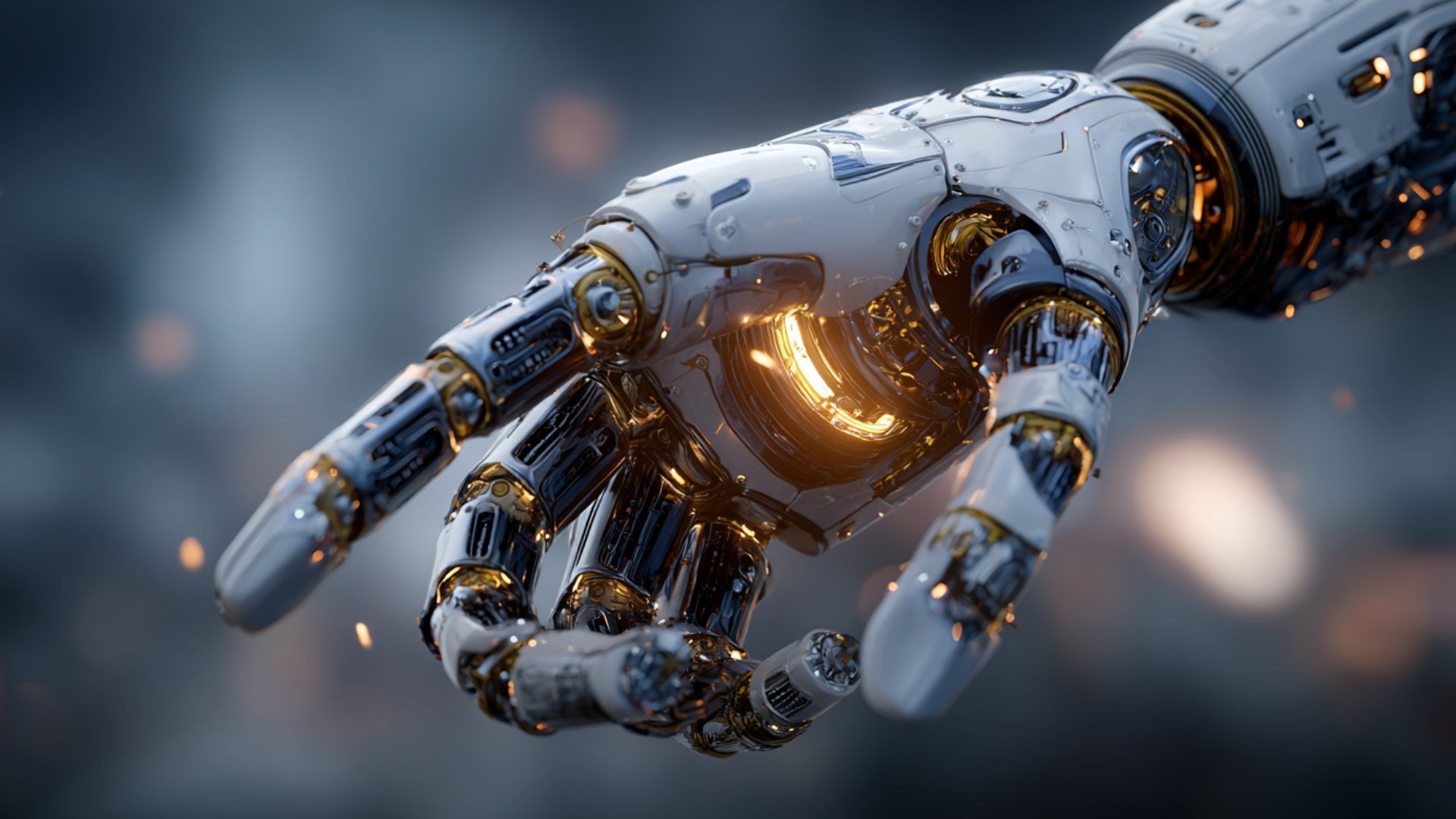The Role of Intelligent Agents in Global AI Transformation

The world embraces the transformation of AI. So, intelligent agents emerge as catalysts for progress and novelty. They enhance resolving processes, operational punch, and elevated client satisfaction. Multi-agent artificial intelligence encompasses assorted varieties of helpers. Each is generally designed to fulfill specific roles within the AI ecosystem. Such agents collaborate and converse seamlessly, fostering a synergistic slant to problem-solving. They are from task-oriented agents streamlining processes to strategic helpers analyzing vast datasets. The diverse functionalities contribute to a more robust and adaptive AI infrastructure.
The impact of IA is evident in industries. There, data-driven decisions and responsiveness are paramount. It doesn't matter whether in finance, healthcare, or fabrication. Deploying multi-agent artificial intelligence enhances real-time decision-making. It improves operational potency and elevates overall customer satisfaction. Organizations can unlock the full potential of AI. They may do it by fostering collaboration among different types of agents. Organizators drive reformative changes that redefine how industries operate in the modern era.
Understanding Intelligent Agents in Artificial Intelligence
In the vast sector of AI, intelligent agents play a pivotal role. They act as autonomous entities capable of perceiving their functions and making decisions. Also, an Intelligent Agent (IA) executes actions to achieve specific goals. They are fundamental components of the AI ecosystem. They contribute significantly to the development and advancement of intelligent systems.
Different types of agents exist in artificial intelligence. Each has distinct characteristics and functionalities:
- Reflex: They are an AI system designed to respond to environmental stimuli in real time. It is without relying on internal models or representations of the world. These agents make decisions based solely on their current sensory inputs and predefined rules or behaviors. They don't use past experiences or future predictions.
- Model-Based: Such helpers incorporate an internal model or representation of their environment. It allows them to make more informed decisions. They consider the current state and predict the potential results of various actions.
- Goal-Based: They focus on achieving specific objectives or states. Goal-based agents in AI evaluate different actions based on their contribution to reaching the desired goal. They select the most effective path to maximize utility.
- Utility-Based: These agents assess actions based on goals. They consider the overall utility or satisfaction associated with each outcome. This approach allows for a more nuanced decision-making process.
- Knowledge-Based: Such agents can assist them in adapting to new situations and improving their artificial intelligence capabilities. They gain knowledge by experience. They change their behavior in response to input and previous environmental encounters.
The importance of different types of agents in artificial intelligence lies in their versatility. They are from reactive responses to sophisticated decision-making and adaptive learning.
Multi-Agent Artificial Intelligence Systems
These systems utilize the capabilities of diverse agents. Each contributes its unique strengths to achieve collective goals. Here is a brief overview of their main features:
- Collaboration: Multi-agent systems foster collaboration among diverse agents. They allow them to pool their resources, knowledge, and expertise. This collaborative approach enhances problem-solving capabilities and promotes synergy in addressing complex challenges.
- Competition: Beyond collaboration, multi-agent systems facilitate healthy competition among agents. Through strategic interactions and adaptive decision-making, agents compete for resources or goals. They drive continuous improvement and innovation within the AI ecosystem.
- Adaptability: Multi-agent systems showcase adaptability. Aids learn from interactions and dynamically adjust strategies. This adaptability ensures resilience in changing environments and evolving problem areas.
The fusion of multi-agent AI systems is an example of dynamic alignment. It helps to solve problems.
Knowledge-Based Agents in Artificial Intelligence
Intelligent agents play a critical role in decision-making processes. They rely on internal knowledge bases, which encapsulate a structured representation of information. It is about the space in which to navigate and solve problems effectively. Knowledge-based agents in AI use their internal knowledge bases to store facts, rules, and relationships. They enable them to comprehend and respond to complex scenarios.
Unlike simple rule-based systems, these tools provide a deeper understanding of the environment. They utilize logical reasoning, inference mechanisms, and pattern recognition. It helps to make informed decisions based on their acquired knowledge.
The key strength of these agents lies in their ability to adapt to varying situations by drawing upon their internal knowledge. This adaptability enables them to tackle a wide range of problems. It responds intelligently to changes in their surroundings. Knowledge-based agents in AI are precious in apps where a deep understanding of the domain is crucial. They allow them to make nuanced decisions and contribute to advancing intelligent systems.
Evolving Types of Agents in AI and Their Applications

In artificial intelligence, agents play diverse roles in problem-solving across sectors. They range from simple reflex agents to complex utility-based agents. Look at our easy-to-understand table:
| Agent Type | Description | Applications |
|---|---|---|
| Reflex Agent | Reacts based on current input, no memory | Robotics, automated systems |
| Model-Based Agent | Uses internal models to plan and make decisions | Gaming, logistics |
| Goal-Based Agent | Pursues predefined goals through planning and decision-making | Personal assistants, scheduling systems |
| Utility-Based Agent | Maximizes utility by evaluating actions based on expected outcomes and preferences | Finance, resource allocation |
Goal-based agents in AI prioritize achieving specific objectives. They employ planning algorithms to devise sequences of actions leading to goal attainment. Common applications include personal assistants, where scheduling and task management are vital.
Utility-based agents, on the other hand, assess actions not just by goal achievement but also by considering utility or value. They weigh potential outcomes against preferences to make decisions. In finance, these agents aid in portfolio management by selecting investments that maximize returns while considering risk tolerance.
These agent types enhance AI problem-solving capabilities. They navigate complex environments more effectively by incorporating goal-directed behavior and utility assessment. For instance, in robotics, goal-based agents enable autonomous navigation toward objectives, while utility-based agents assist in resource allocation for optimal performance.
As AI evolves, these agent types continue to find new applications. They are integral in areas like healthcare, where:
- goal-based agents assist in treatment planning
- utility-based agents aid in resource allocation for patient care
Understanding these agent types and their applications is crucial for leveraging AI's problem-solving potential across diverse domains.
Logical Agents and Rational Decision-Making
Intelligent agents are generally designed to formalize rational resolving processes. They do it by employing logical reasoning and inference mechanisms. A logical agent in artificial intelligence operates on a foundation of formal logic. It uses rules, facts, and relationships to draw conclusions and make informed decisions. By applying propositional and first-order logic, these aids navigate complex problem spaces. They do it by deducing the most appropriate actions based on their internal knowledge. The rational decision-making facilitated by logical agents is especially valuable in domains. Here, precise reasoning and inference are crucial.
These tools are vital when diagnosing healthcare or faults in engineering systems. They analyze vast amounts of data and draw accurate conclusions. Leveraging a formal and systematic slant to decision-making is pivotal. Logical agents in artificial intelligence contribute to the growth of new systems. They can make good decisions in complex and dynamic areas. Your emphasis on rational thinking improves the effectiveness and reliability of solution processes. They can work in different places.
The Impact of Intelligent Agents on Employee Engagement
Intelligent agents are pivotal in the employee attraction process. They catalyze digital transformation in the workplace, profoundly impacting employee engagement. These agents can:
- streamline workflows
- automate routine tasks
- provide personalized assistance
They are fostering a more dynamic and engaging work process. By integrating them, employees experience increased efficiency and reduced administrative burdens. Routine tasks are fully automated, so more time is available for meaningful and strategic tasks. Personalized interactions with internal audits improve the employee experience. They customize support and information provision to individual needs.
This transformation optimizes operational processes. It contributes to a positive shift in company culture. Employees are likely to feel valued and engaged with improved potency and personalized support. They increase satisfaction and productivity.
The relationship between digital transformation and employee engagement underscores their role as pivotal. It is vital in driving positive workplace dynamics amidst the web reformation era.
Transforming Customer Experience with AI and Automation
Integrating artificial intelligence and mechanization reforms client service. It does so through unprecedented personalization and increased efficiency. Here's a comprehensive overview of how these techs revolutionize it. Transforming customer experience with AI and automation happens across various industries:
- Personalization through AI: AI-driven algorithms analyze customer data to identify preferences and patterns. They allow businesses to provide personalized recommendations and tailored interactions.
- Automated Customer Support: IA and chatbots with NLP enhance customer service. They do it by providing instant, 24/7 support. This automation not only accelerates issue resolution but also ensures consistent service quality.
- Dynamic Pricing in Retail: AI algorithms analyze market trends and competitor pricing. They also analyze customer behavior to dynamically adapt pricing. This personalized pricing strategy improves customer satisfaction and increases sales.
- Banking Chatbots for Transactions: Banking institutions use bots. So, they simplify routine transactions, balance inquiries, and fund transfers. This automation enhances customer convenience, reducing the need for in-person or phone-based interactions.
- Predictive Attendance in Services: AI-driven fault prediction in service industries anticipates equipment failures. This proactive approach minimizes downtime, ensuring seamless client satisfaction.
Successful Realization:
- E-commerce Giant X: Implemented AI-driven recommendation engines. They result in a 20% increase in customer engagement and a significant boost in conversion rates.
- Leading Bank Y: Deployed AI-powered bots for customer inquiries. They reduce response times by 30% and enhance overall customer satisfaction.
- Service Provider Z: Utilized predictive maintenance algorithms. They lead to a 25% decrease in equipment downtime and a noticeable improvement in service reliability.
The synergy between AI and automation transforms customer experience. It is across e-commerce, banking, and service industries. These technologies empower businesses to meet evolving client expectations. Also, they help them to deliver efficient, tailored, responsive services.
Challenges and Ethical Considerations in Implementing Intelligent Agents

Applying IA in various domains poses challenges and ethical considerations. Organizations must address this to ensure responsible deployment. Also, they need to maximize the benefits of digital transformation and employee engagement.
Challenges:
- Privacy Concerns: Intelligent agents use extensive data sets to function effectively. However, collecting and utilizing personal data raises privacy concerns. They require careful management to avoid infringing on individuals' privacy rights.
- Safety Risks: With increased reliance on IA, cybersecurity threats are often heightened. Attackers may attempt to exploit vulnerabilities in AI systems. They emphasize the need for robust security measures.
- Accountability and Transparency: Determining accountability in case of errors or unintended consequences. They become challenging in complex AI systems. Lack of transparency in decision-making processes can make tracking and correcting problems difficult.
Ethical Considerations:
- Bias and Fairness: Organizations must strive for fairness and inclusivity in AI algorithms. So they can avoid discriminatory outcomes.
- Job Displacement: Integrating IA can lead to concerns about job displacement. Organizations must address the impact on the workforce. Also, they need to implement strategies for reskilling and upskilling employees.
Strategies for Mitigation:
- Ethical Frameworks: Establishing explicit ethical scopes and guidelines for applying IA is helpful. It helps ensure responsible and accountable use.
- Data Governance: Applying robust data governance practices, including anonymization and encryption. They help address privacy concerns and build trust among users.
- Explainable AI: Incorporating explainability features in intelligent agents enhances transparency. It allows users to understand the decision-making processes and foster trust.
- Continuous Monitoring and Evaluation: Regularly monitoring and evaluating intelligent agents' performance is vital. It can help promptly identify and rectify biases, errors, or security vulnerabilities.
Navigating the challenges and ethical considerations in applying IA requires a thoughtful approach. Addressing concerns about privacy, security, accountability, and fairness is crucial. So organizations can ensure that the AI transformation aligns with ethical standards. It promotes a positive and responsible impact on digital transformation and employee engagement.
The Future of AI Transformation with Intelligent Agents
The evolution and integration of intelligent agents will determine the future of AI. Here are predictions for their roles in driving global transformation:
- Enhanced Resolving: As AI techs advance, they will play a pivotal role in decision-making processes. These agents will offer increasingly accurate and nuanced information. They integrate more sophisticated algorithms and ML capabilities. They enable organizations to make informed decisions in complex scenarios.
- Output Optimization: The future will see a dramatic increase in the power of AI systems driven by intelligent agents. They are generally equipped with learning capabilities. Such aids will continuously adapt and optimize processes. They lead to streamlined operations and resource utilization across various industries. This enhanced potency will contribute to cost savings and improved overall performance.
- Human-Machine Collaboration: Intelligent agents will increasingly collaborate seamlessly with humans. They foster a harmonious relationship between AI systems and human workers. The future workplace will see a rise in collaborative efforts. Digital aids enhance human productivity by handling routine tasks. They allow humans to focus on their roles' more complex and creative aspects.
- Personalized Experiences: Advances in AI techs will make intelligent and rational agents decisive. They provide highly customized experiences in various areas. These agents will use rich healthcare, education, and e-commerce data sets. They'll help them to tailor services and interactions. They take into account individual preferences and needs.
- Autonomous Rational Agents: The evolution of AI will bring about autonomous rational agents. They are capable of more advanced resolving without explicit human programming. These helpers will exhibit more autonomy and adaptability. They contribute to developing more self-sufficient systems.
The future of AI reformation with intelligent and rational agents at its core holds promising prospects. They range from improving, resolving, and optimizing productivity to promoting human-machine collaboration. Also, they vary in granting a personalized experience. These helpers are set to play a central role in shaping the next phase of the AI revolution globally.


